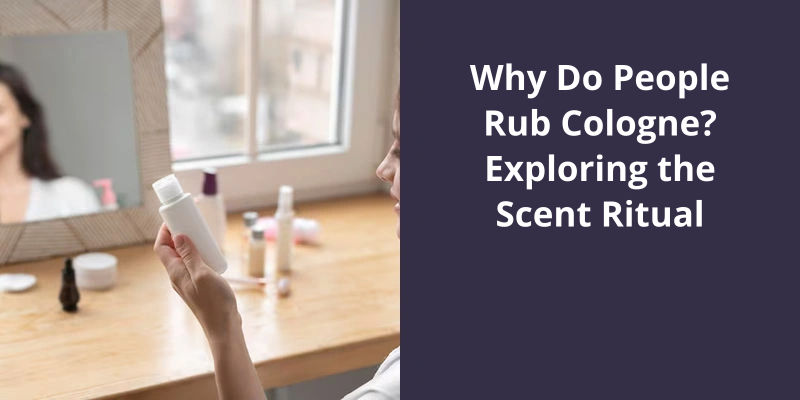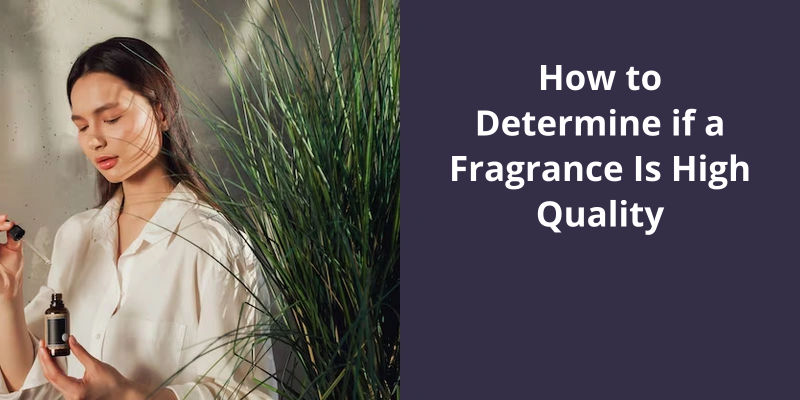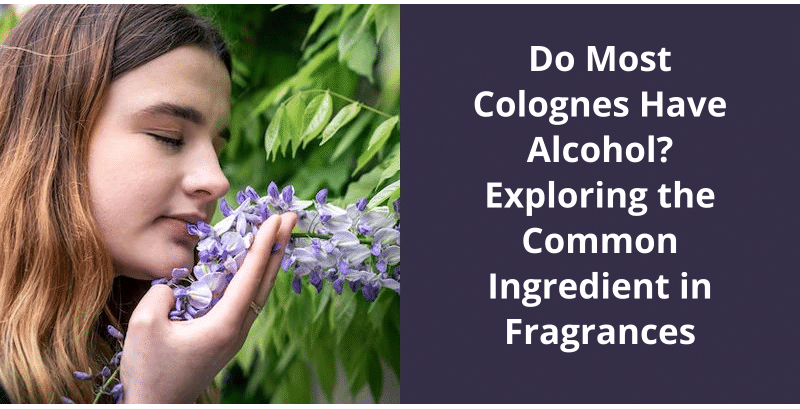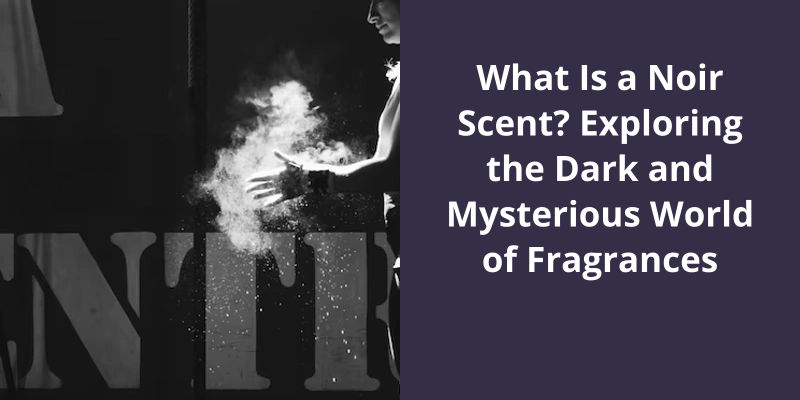The act of rubbing cologne onto one's skin has long been a part of our grooming routine, but have you ever stopped to wonder why we do it? Is it to enhance the fragrance or to make it last longer? Contrary to popular belief, rubbing cologne into your skin may actually have a negative impact on the scent's longevity. In fact, doing so can break the molecular bond of the fragrance, causing it to dissipate faster than intended. So why do people continue to rub their cologne onto their skin? Perhaps it's a habit deeply ingrained in our cultural practices, or maybe it's simply a way to experience the scent more closely.

Where Do You Apply Rubbing Cologne?
When it comes to applying cologne, there are certain areas on the body that are more effective than others. Traditionally, the neck has always been a popular spot to apply cologne. The reason for this is simple – the neck is one of the warmest areas of the body and thus it allows the cologne to warm up and spread more easily. In addition, the skin on the neck is typically quite thin, which can help to enhance the scent of the fragrance.
Another popular area to apply cologne is the inner elbow. This is because the skin here is also quite thin, which can help to make the fragrance more noticeable. In addition, the crease of the arm is another warm area of the body, which can help to activate the scent more effectively. When applying cologne to this area, it’s best to spray directly onto the skin rather than onto clothing.
In fact, many people will apply their cologne directly to their wrists and then rub them together. This is a popular method of application because the wrists are often exposed and thus the fragrance is more noticeable.
For those who’re looking for a more subtle application, the chest and stomach areas can also be effective. These areas are less warm than the neck and inner elbows, but they still offer enough body heat to help activate the scent.
Some fragrances may work better in certain areas of the body than others, so it’s important to experiment and find out what works best for you.
How to Choose the Right Fragrance for Your Body Chemistry
To choose the perfect fragrance, consider your body chemistry and how it will interact with scents. Consider your skin type, natural body odor, and even your diet to select a fragrance that complements your unique chemistry. Test fragrances before purchasing by applying them to pulse points and smelling throughout the day. Finally, trust your nose and choose a fragrance that makes you feel confident and happy.
Many people believe that rubbing in cologne onto their skin is the best way to get the most out of their scent. However, research has shown that this isn’t the case. In fact, rubbing in cologne can fade the fragrance even faster due to the breaking of molecular bonds. So, what’s the best technique for using fragrances? Read on to find out.
What Does Rubbing in Cologne Do?
Have you ever been told to rub in your cologne to make it last longer? Well, unfortunately, this is a common myth that can actually do more harm than good. Rubbing the perfume onto your skin can actually cause the scent to fade faster as it breaks the molecular bond in the fragrance. This is because the heat and friction generated by rubbing can alter the chemical composition of the scent, causing it to evaporate more quickly.
When you spray cologne onto your skin, it forms a thin film on the surface of your skin. This film slowly releases the fragrance molecules into the air, allowing you to enjoy the scent throughout the day. This is why it’s important to avoid rubbing the cologne onto your skin, particularly if you want the scent to last all day.
So, what should you do instead? The simple answer is to just dab the fragrance onto your skin, rather than rubbing it in. By dabbing the fragrance onto your skin, you avoid breaking the molecular bond in the scent. This allows it to last longer and provides a more consistent, subtle aroma.
Of course, it’s important to remember that the longevity of a fragrance depends on a number of factors. The quality and concentration of the fragrance, the type of skin you have, and even your surrounding environment can all impact how long a fragrance lasts. However, by avoiding unnecessary rubbing and choosing high-quality fragrances with a long-lasting formula, you can ensure that you always smell your best.
By doing so, you can enjoy a long-lasting, subtle aroma that will keep you smelling great throughout the day. So, the next time you reach for your favorite cologne, remember to use a light touch and enjoy the fragrance to it’s fullest potential!
The Science Behind the Different Notes in Fragrances and How They Interact With Your Skin
Fragrances are made up of different notes that interact with your skin in unique ways. The science behind these notes is complex and involves a combination of chemicals that create a specific scent. Each note has a different volatility, or rate of evaporation, which affects how long the fragrance lasts on your skin and how it interacts with your natural oils. Additionally, certain notes can react differently depending on an individual’s skin type and pH level. Overall, the science behind fragrance notes is a fascinating blend of chemistry and biology.
Now that you know rubbing perfume onto your skin isn’t the best practice, let’s explore some proper application techniques that will help ensure your favorite scent lasts all day.
What Happens if You Rub Perfume on Your Skin?
Furthermore, rubbing perfume into your skin also increases the likelihood of skin irritation, especially if the perfume contains alcohol. The friction caused by rubbing the fragrance can cause tiny tears in the skin, which can lead to redness, itching, and even inflammation.
Instead of rubbing perfume into your skin, it’s best to spritz the fragrance onto pulse points such as your neck, wrists, and behind your ears. These areas generate heat, which helps the fragrance to evaporate and work with your body chemistry to create a unique scent that’s just for you.
When you spritz perfume onto your skin, you allow the fragrance to develop naturally and settle into the skins oils and pH. This creates a longer-lasting and more authentic scent that truly reflects the fragrances notes and depth.
In addition to avoiding skin irritation, spraying perfume onto your skin instead of rubbing it in can also help the fragrance last longer. Since rubbing causes the top notes to dissipate, spritzing allows the fragrance to develop without interruption, resulting in a longer-lasting scent experience.
The Effects of Perfume on Different Skin Types (e.g. Oily, Dry, Sensitive)
Perfume can have different effects on people based on their skin type. Oily skin may absorb the scent quickly and intensify it, while dry skin may not hold onto the scent as well. Those with sensitive skin may experience irritation or allergic reactions to certain perfume ingredients.
Where Do You Put the Rub on Cologne?
There’s an art to wearing cologne that’s often overlooked. Many people spray a fragrance into the air and walk through it, leaving the scent to settle on their clothes and hair. While this method can be effective, it doesn’t take full advantage of the fragrances potential. The best way to wear cologne is to apply it directly to the skin, specifically on pulse points. These are areas where the blood vessels are closest to the skin, and therefore, the warmest. This warmth will help the fragrance to diffuse throughout the day.
The most common pulse points are located on the neck, wrists, and chest. However, different colognes may benefit from different pulse points. For example, a cologne with a floral or citrus scent may benefit from being spritzed on the hair or behind the ears, while a spicy or musky cologne may benefit from being dabbed on the forearms or back of the neck. It’s essential to experiment with different applications to find the best method for each fragrance.
When applying cologne, it’s crucial to use a light touch. Spritz or dab a small amount of fragrance onto the pulse point, and then apply gentle pressure with the wrist to help the fragrance settle into the skin. This will help to prevent the cologne from evaporating or dissipating quickly. Avoid rubbing the fragrance into the skin, as this can break down the fragrance molecules and alter the scent.
Another consideration when applying cologne is to avoid overdoing it. Less is often more when it comes to fragrance. Applying too much cologne can be overwhelming for those around you, and may even cause adverse reactions in people with sensitive noses or allergies. A few spritzes or dabs in the appropriate pulse points are usually sufficient to achieve the desired effect.
Finally, it’s essential to store cologne properly to ensure it’s longevity. Keep fragrances in a cool, dry place away from direct sunlight and high temperatures. Exposure to heat and light can break down the fragrance molecules and alter the scent over time. Additionally, avoid shaking the fragrance bottle vigorously, as this can cause the fragrance to lose it’s balance and intensity. Instead, gently roll the bottle between your palms to mix the fragrance before use.
The Difference Between Cologne, Perfume, and Other Fragrances
- Cologne is a term often used to describe fragrances that have a lower concentration of essential oils and a higher concentration of alcohol.
- Perfume typically contains a higher concentration of essential oils and a lower concentration of alcohol than cologne.
- Eau de Parfum is a type of perfume that’s a relatively high concentration of essential oils and can have a longer-lasting scent.
- Eau de Toilette is a lighter fragrance than Eau de Parfum and typically has a lower concentration of essential oils.
- Eau Fraiche is a type of fragrance that’s a low concentration of essential oils and a high concentration of water.
- Body mist is a type of fragrance that’s usually light and refreshing and can be sprayed over the entire body.
Conclusion
The molecular bond in the fragrance is disrupted by the friction created by rubbing and ultimately leads to a faster fade in the scent. This knowledge may prompt individuals to reconsider the way they apply their beloved fragrances and perhaps opt for a gentler approach to preserve the longevity of their coveted scents.





